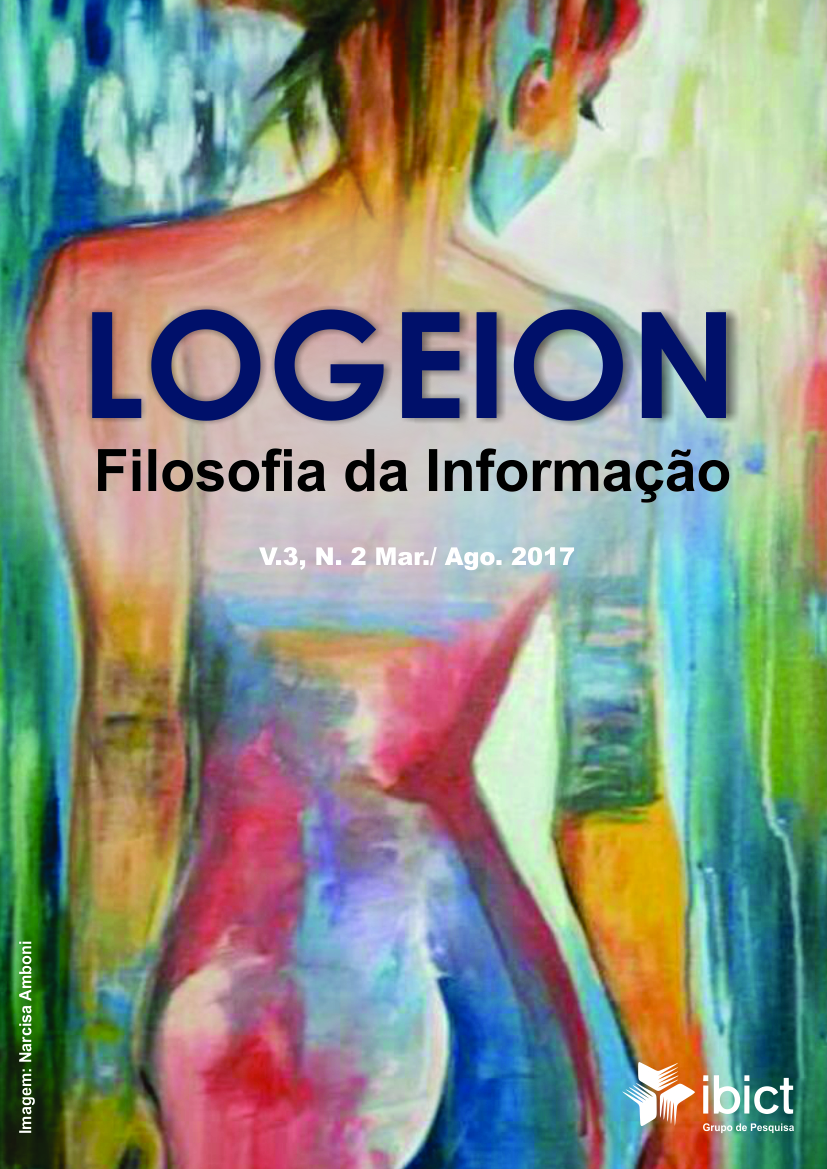DOCUMENTARY FRAGMENTS, POP-POLITICS, AND FASCISM
DOI:
https://doi.org/10.21728/logeion.2017v3n2.p10-17Palavras-chave:
Internet. Social mídia. Facism. Trump.Resumo
This article addresses the role of social media fragments in the return of fascist politics It argues that beside or contrary to a conscious collective intelligence emerging through the internet, a collective unconscious has seized the political space, delegitimatizing modern institutions of documentary truth based on evidence, method, and the institutional construction of facts.
Downloads
Referências
BENJAMIN, W. The work of art in the age of mechanical reproduction. In:
ARENDT, H. (Ed.). Illuminations. New York: Schocken, 1968. p. 217-251.
DAY, R. E. The modern invention of information: discourse, history, and power. Carbondale: Southern Illinois University Press, 2001.
FROHMANN, B. The role of facts in Paul Otlet's modernist project of documentation. In: RAYWARD, W. B. (Ed.), European modernism and the information society: informing the present, understanding the past.
Burlington, VT: Ashgate, 2007. p. 75-88.
LATOUR, B. An inquiry into modes of existence: an anthropology of the moderns. Massachusetts: Harvard University Press, 2013.
____________________________________________________________
Benjamin, W. (1968). The work of art in the age of mechanical reproduction (H. Zohn, Trans.). In H. Arendt (Ed.), Illuminations (pp. 217-251). New York: Schocken.
Day, R. E. (2001). The modern invention of information discourse, history, and power
Frohmann, B. (2007). The role of facts in Paul Otlet's modernist project of documentation. In W. B. Rayward (Ed.), European modernism and the information society: Informing the present, understanding the past (pp. 75-88). Burlington, VT: Ashgate.
Latour, B. (2013). An inquiry into modes of existence : an anthropology of the moderns.
Publicado
Edição
Seção
Licença
Copyright (c) 2023 Logeion: Filosofia da Informação

Este trabalho está licenciado sob uma licença Creative Commons Attribution-NonCommercial-ShareAlike 4.0 International License.
A revista é publicada sob a licença Creative Commons - Atribuição - Uso Não Comercial - Partilha nos Mesmos Termos 4.0 Internacional.
O trabalho publicado é considerado colaboração e, portanto, o autor não receberá qualquer remuneração para tal, bem como nada lhe será cobrado em troca para a publicação.
Os textos são de responsabilidade de seus autores.
É permitida a reprodução total ou parcial dos textos da revista, desde que citada a fonte.














